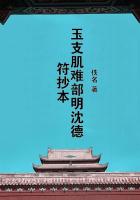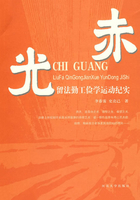"They put us in a room together then, and our counsel said how sorry they were, and shook hands, and went off to dinner and left us. I thought they might have waited with us and been a little late for dinner just that once; but no one waited except a lot of costers outside whom we did not know. It was eight o'clock and still quite light when we came out, and there was a line of four-wheelers and a hansom ready for us. I'd been hoping they would take us out by the Strand entrance, just because I'd like to have seen it again, but they marched us instead through the main quadrangle--a beastly, gloomy courtyard that echoed, and out, into Carey Street--such a dirty, gloomy street. The costers and clerks set up a sort of a cheer when we came out, and one of them cried, 'God bless you, sir,' to the doctor, but I was sorry they cheered. It seemed like kicking against the umpire's decision.
The Colonel and I got into a hansom together and we trotted off into Chancery Lane and turned into Holborn. Most of the shops were closed, and the streets looked empty, but there was a lighted clock-face over Mooney's public-house, and the hands stood at a quarter past eight. I didn't know where Holloway was, and was hoping they would have to take us through some decent streets to reach it; but we didn't see a part of the city that meant anything to me, or that I would choose to travel through again.
"Neither of us talked, and I imagined that the people in the streets knew we were going to prison, and I kept my eyes on the enamel card on the back of the apron. I suppose I read, 'Two-wheeled hackney carriage: if hired and discharged within the four-mile limit, 1s.' at least a hundred times. I got more sensible after a bit, and when we had turned into Gray's Inn Road I looked up and saw a tram in front of us with 'Holloway Road and King's X,' painted on the steps, and the Colonel saw it about the same time I fancy, for we each looked at the other, and the Colonel raised his eyebrows. It showed us that at least the cabman knew where we were going.
"'They might have taken us for a turn through the West End first, I think,' the Colonel said. 'I'd like to have had a look around, wouldn't you? This isn't a cheerful neighborhood, is it?'
"There were a lot of children playing in St. Andrew's Gardens, and a crowd of them ran out just as we passed, shrieking and laughing over nothing, the way kiddies do, and that was about the only pleasant sight in the ride. I had quite a turn when we came to the New Hospital just beyond, for I thought it was Holloway, and it came over me what eight months in such a place meant. Ibelieve if I hadn't pulled myself up sharp, I'd have jumped out into the street and run away. It didn't last more than a few seconds, but I don't want any more like them. I was afraid, afraid--there's no use pretending it was anything else. I was in a dumb, silly funk, and I turned sick inside and shook, as I have seen a horse shake when he shies at nothing and sweats and trembles down his sides.
"During those few seconds it seemed to be more than I could stand; I felt sure that I couldn't do it--that I'd go mad if they tried to force me. The idea was so terrible--of not being master over your own legs and arms, to have your flesh and blood and what brains God gave you buried alive in stone walls as though they were in a safe with a time-lock on the door set for eight months ahead. There's nothing to be afraid of in a stone wall really, but it's the idea of the thing--of not being free to move about, especially to a chap that has always lived in the open as I have, and has had men under him. It was no wonder I was in a funk for a minute. I'll bet a fiver the others were, too, if they'll only own up to it. I don't mean for long, but just when the idea first laid hold of them. Anyway, it was a good lesson to me, and if I catch myself thinking of it again I'll whistle, or talk to myself out loud and think of something cheerful. And I don't mean to be one of those chaps who spends his time in jail counting the stones in his cell, or training spiders, or measuring how many of his steps make a mile, for madness lies that way. I mean to sit tight and think of all the good times I've had, and go over them in my mind very slowly, so as to make them last longer and remember who was there and what we said, and the jokes and all that; I'll go over house-parties Ihave been on, and the times I've had in the Riviera, and scouting parties Dr. Jim led up country when we were taking Matabele Land.
"They say that if you're good here they give you things to read after a month or two, and then I can read up all those instructive books that a fellow never does read until he's laid up in bed.
"But that's crowding ahead a bit; I must keep to what happened to-day. We struck York Road at the back of the Great Western Terminus, and I half hoped we might see some chap we knew coming or going away: I would like to have waved my hand to him. It would have been fun to have seen his surprise the next morning when he read in the paper that he had been bowing to jail-birds, and then I would like to have cheated the tipstaves out of just one more friendly good-by. I wanted to say good-by to somebody, but I really couldn't feel sorry to see the last of any one of those we passed in the streets--they were such a dirty, unhappy-looking lot, and the railroad wall ran on forever apparently, and we might have been in a foreign country for all we knew of it. There were just sooty gray brick tenements and gas-works on one side, and the railroad cutting on the other, and semaphores and telegraph wires overhead, and smoke and grime everywhere, it looked exactly like the sort of street that should lead to a prison, and it seemed a pity to take a smart hansom and a good cob into it.
"It was just a bit different from our last ride together--when we rode through the night from Krugers-Dorp with hundreds of horses' hoofs pounding on the soft veldt behind us, and the carbines clanking against the stirrups as they swung on the sling belts.
We were being hunted then, harassed on either side, scurrying for our lives like the Derby Dog in a race-track when every one hoots him and no man steps out to help--we were sick for sleep, sick for food, lashed by the rain, and we knew that we were beaten; but we were free still, and under open skies with the derricks of the Rand rising like gallows on our left, and Johannesburg only fifteen miles away."















